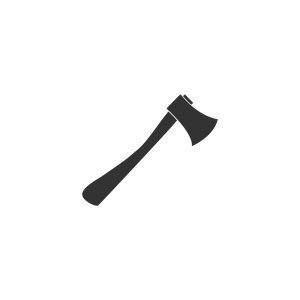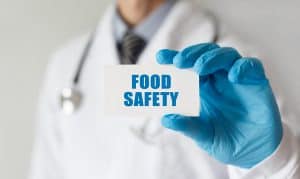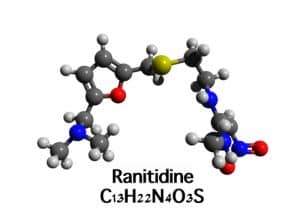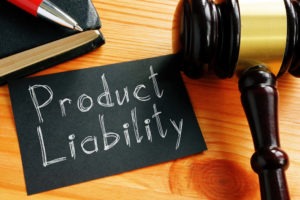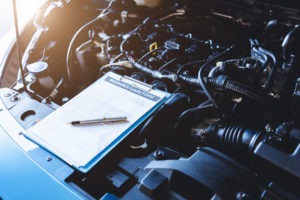
Defective Product Law and Defective Vehicle Parts
Some car, truck, and motorcycle accidents occur because of there is a weak part, a poorly designed part, or an issue with the way the manufacturer assembled the automobile. Because every part of your vehicle serves a very specific purpose in its operation to keep you safe, a problem with even a single bolt can lead to accident injuries. When major defects occur in tires, airbag assemblies, steering columns, or brake systems, the effects can be devastating.
If you suffered injuries because of a defective vehicle part, you may be able to collect compensation to cover your medical bills, lost wages, pain and suffering, and more. Pennsylvania’s defective product statutes are complex and ever-changing. You need a skilled attorney on your side to ensure you get the maximum payout available in your case.
At Berger and Green, our lawyers are ready to go to work for you. Call us today at 412-661-1400 for a complimentary consultation with a defective vehicle part lawyer in Pittsburgh.
40+ years of experience from strong, knowledgeable, compassionate attorneys.
Start A Free EvaluationHow Do Defective Vehicle Parts Cause Car Accidents?
Car manufacturers have a responsibility to build and market automobiles that do not pose any unreasonable risks to drivers or passengers and are “crashworthy.” This means they meet strict guidelines that ensure they provide the highest level of protection possible during a collision or other accident. When manufacturers use weak, ill-designed, or otherwise defective parts to build the cars they sell, they do not meet these responsibilities.
Some of the most common defective vehicle parts include:
- Tires;
- Brake systems;
- Steering systems;
- Cruise control devices;
- Accelerationor deceleration components;
- Chassis;
- Gas tanks;
- Seat belts; and
- Air bags.
We can hold the manufacturer of the defective part or the car manufacturer liable for injuries in these crashes. However, navigating the process to recover compensation in either of these cases is a bumpy road unless you have a knowledgeable defective parts lawyer on your case.
We know you’re hurting. We can help. Free case evaluations, home and hospital visits.
Contact Us Now For HelpHow Are Defective Vehicle Parts Related to Recalls?
Many people believe all defective vehicle parts lead to recalls and that they cannot hold a car manufacturer responsible for their crash unless the part defect triggered a recall. This is far from the truth.
Vehicle recalls began more than 50 years ago. Since that time, the National Highway Traffic Safety Administration (NHTSA) has recalled:
- 390 million vehicles;
- 66 million parts; and
- 46 million tires.
Still, a recall only occurs if the defect affects a large number of vehicles. These statistics do not begin to cover all the part defects found in individual cars or a few vehicles. In addition, car manufacturers will often do everything they can to prevent issuing a recall. Recalls cost them time and money—not to mention their negative impact on consumers’ trust. They want to avoid a recall if at all possible. For this reason, a number of accidents often occur due to the same flaw or defect before the manufacturer steps up and takes responsibility. In some cases, these companies refuse to ever offer a voluntary recall and the NHTSA must force them to recall and repair defective vehicles.
You need an attorney with the experience and dedication to give your case the care it deserves.
Start A Free EvaluationHow Do Defective Automobile Part Claims Work?
Like other states, Pennsylvania has strict liability statutes that make it possible for consumers to hold large corporations accountable for product defects. While the rules and process are complex, these laws make it easier for us to hold the manufacturer responsible for your injuries.
Because of these laws, we do not have to prove where or how the automaker or parts manufacturer acted negligently. Instead, we only need to prove they made the product, that it had a defect, and that this defect caused or worsened your injury.
In Pennsylvania, case law defines how we know when a product has a defect. It must meet one of two conditions.
The Consumer Expectation Test
Under this test, a product is defective if it poses a danger beyond the user’s reasonable expectations. Consumers accept some level of potential risk for every product they use. When the actual risk exceeds what a reasonable person would expect, the product is defective.
The Risk-Utility Test
This test rules a product or part defective if a reasonable person would deem the probability of a serious injury high enough that it outweighs the financial and time burden of making the product safer.
If the automobile part in question meets either of these tests, we can probably file a claim to collect compensation for your accident damages. We can help you identify any and all liable parties, collect evidence, negotiate your settlement, and represent you in front of the insurance companies. If necessary to get a fair payout, we can litigate your claim in court.
We can address all the legal hurdles that may be keeping you from getting a fair settlement.
Speak To An Attorney TodayWhat Evidence Do I Need to Prove My Case?
While strict liability laws may seem like they make it easy to win these cases, this is far from reality. Automakers and other large corporations will do everything they can to keep from admitting their products are defective. Their bottom line often seems more important than preventing other people from suffering injuries or even death. We see this frequently in accidents that occur because of tire blowouts, vehicle rollovers due to poor design, brake failures, and many other situations. This is why it is paramount to have a skilled and knowledgeable lawyer on your side before you file an insurance claim in these cases.
When we take on your case, we go to work collecting all available evidence to support your claim and the maximum compensation available based on the facts of your accident. To establish liability and prove the part defect, we need to investigate:
- The vehicle, defective part, or images of the questionable part;
- The official police reports from the accident;
- Expert testimony, including accident reconstructionists;
- Vehicle inspection reports or information from the shop that repaired the car;
- Eyewitness testimony from the scene of the accident; and
- A complete history of similar incidents involving the same make or model car.
We delve into all aspects of your accident, the cause, and how the defective part played a role. We may need to use your medical records and expert testimony to determine the value of your case or to show the defective part made your crash injuries worse. Our goal is to leave the automaker or part manufacturer with little argument to deny or reduce the value of your claim.
We demand full payment for your medical expenses, lost wages, other accident-related costs, and pain and suffering damages. If they refuse to pay out, we are not afraid to engage in a high-profile court case. Most companies, however, want to avoid this negative publicity. We can negotiate a settlement with them earlier in the claims process.
How Can I Talk to a Lawyer?
At Berger and Green, we can help you collect the money you deserve after a defective part, defective design, or lack of adequate warning caused or contributed to your car accident injuries. Call us today at 412-661-1400 to schedule your complimentary consultation with a defective vehicle part attorney in Pittsburgh.


